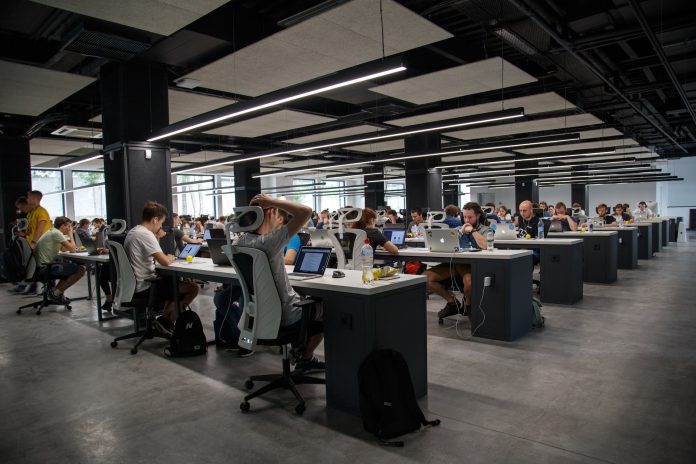The modern workplace is transforming, driven by the influx of a new generation: Millennials. As the largest generation in the workforce, Millennials bring a unique set of traits and expectations that are redefining how businesses operate. In a recent interview, Roberta from vacancycentre.com aptly stated, “Understanding and meeting the needs of Millennials is essential for businesses that want to thrive in the future.”
Understanding Millennials: Who They Are and What They Value
Millennials, born between 1981 and 1996, have been shaped by a unique blend of technological advances, economic uncertainty, and societal shifts. They are digital natives, socially conscious, and value authenticity. They are more likely to value experiences over material possessions and are motivated by purpose and personal growth rather than just monetary rewards.
The Millennial Impact: Workforce Trends and Predictions
Millennials have already started to shape the future of work. They are driving the demand for flexible work arrangements, collaborative work environments, and increased use of technology. As the Baby Boomer generation retires, Millennials are predicted to make up 75% of the workforce by 2025. Their influence cannot be overstated.
What Millennials Look for in a Job: Beyond Salary
While a competitive salary is important, Millennials look beyond paychecks when choosing a job. They prioritize work-life balance, career growth opportunities, company culture and the chance to make a positive impact on society. They also value strong company culture, diversity, and inclusivity.
Work-Life Balance
Millennials place a high value on work-life balance. Growing up in a digitally connected world, they appreciate the ability to work flexibly and remotely when needed. They are drawn towards companies that respect personal time, encourage regular breaks, and promote physical and mental wellness initiatives. Work-life balance isn’t just a buzzword for them—it’s a non-negotiable requirement for their overall well-being.
Career Growth Opportunities
Millennials are keenly focused on their professional development. They are eager to advance in their careers and are always on the lookout for opportunities to learn and grow. Companies that offer mentorship programs, regular training, and clear paths to advancement will be more appealing to this generation. They want to feel that their career has momentum and that they are continually progressing and evolving in their roles.
Company Culture
A strong, positive company culture is another important factor for Millennials. They want to work in an environment that is collaborative, innovative, and inclusive. They seek out companies that value diversity, promote open communication, and foster a sense of belonging. Companies that actively work to create a healthy and engaging culture will find it easier to attract and retain Millennial talent.
Positive Societal Impact
Millennials are often driven by purpose and the desire to make a difference in the world. They want to work for companies that are socially responsible and committed to positive change. This means they are attracted to businesses that prioritize sustainability, ethical practices, and community involvement. Companies that can demonstrate a commitment to these values will stand out as desirable places to work for Millennials.
Attracting Millennials: Modern Recruitment Strategies
Successfully attracting Millennials requires modern recruitment strategies. Digital recruitment is key; job postings should be mobile-friendly and present on social media platforms. Roberta from vacancycentre suggests that employer branding is essential, stating, “Millennials want to work for companies that align with their values and have a strong, positive company culture. Showcasing these aspects can significantly boost your appeal to this generation.”
Creating a Millennial-Friendly Workplace: Culture and Environment

Creating a Millennial-friendly workplace goes beyond offering trendy perks. It requires a culture of transparency, inclusivity, and flexibility. Flexible work options, including remote work and flexible hours, are highly valued. A supportive, feedback-rich environment that fosters personal and professional growth is also crucial.
Engaging Millennials: Motivation and Job Satisfaction
Engaging Millennials involves more than just offering a good salary. They seek meaningful work and opportunities for growth. Regular feedback, recognition, and opportunities to learn and develop are critical for their job satisfaction. A sense of purpose and the ability to contribute to the company’s mission can also significantly boost their engagement levels.
Retaining Millennials: Growth Opportunities and Employee Retention Strategies
Retention strategies for Millennials should focus on growth opportunities. Millennials crave advancement and continuous learning. Regular performance reviews, career development plans, and opportunities to acquire new skills can help retain Millennial employees. Also, acknowledging their contributions and providing a clear career progression path can significantly increase retention rates.
My Final Thoughts about Preparing for a Millennial-Dominated Future
Attracting and retaining Millennials is no longer an option; it’s a necessity for businesses to remain competitive. By understanding their unique traits and values, companies can create an environment that not only attracts but also nurtures and retains this influential generation. As Roberta from vacancycentre.com says, “The future is Millennial. Embrace it.”
The challenge to attract and retain Millennials is significant, but so too is the opportunity. As businesses prepare for a Millennial-dominated future, those that successfully adapt will reap the benefits of a motivated, innovative, and dedicated workforce ready to drive their organizations towards success.


























![Deconstructing the Myth of Entrepreneurship iStock-2151090098 [Converted]](https://www.europeanbusinessreview.com/wp-content/uploads/2024/09/iStock-2151090098-Converted-100x70.png)







